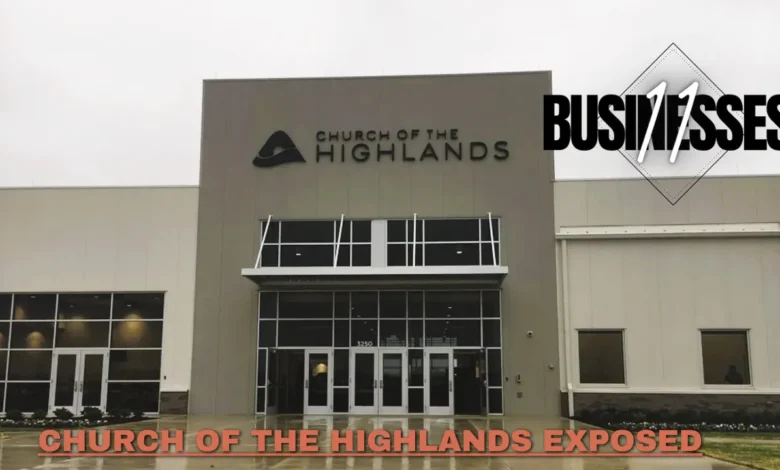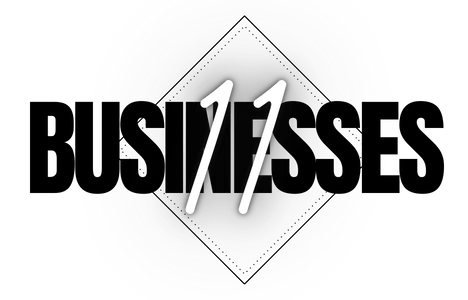Church of the Highlands Exposed: Understanding the Controversies and Community

The “Church of the Highlands Exposed” explores the multifaceted nature of this prominent church based in Alabama.
Founded in 2001 by Chris Hodges, the church has rapidly grown into one of the largest non-denominational Christian congregations in the United States.
While many find joy, community, and spiritual fulfillment within its vibrant atmosphere, there are also significant controversies and criticisms surrounding its practices and teachings.
In this article, I aim to provide a balanced view that highlights both the positive aspects and the concerns raised by former members and critics alike.
What is the Church of the Highlands?
The Church of the Highlands, located in Alabama, is a non-denominational Christian church founded in 2001 by Chris Hodges.
It started with just a handful of members and has grown into one of the largest churches in the United States, with thousands attending each week.
The church focuses on a contemporary approach to worship, often incorporating modern music and engaging sermons. Its mission is to spread the message of Jesus Christ and provide support to its community.
The church hosts various events and activities, from worship services to community outreach programs.
Many people are drawn to the church for its welcoming atmosphere and dynamic worship style. However, some critics question the church’s practices and teachings, sparking discussions about its true nature.
What Makes the Church of the Highlands Unique?
One of the most striking features of the Church of the Highlands is its focus on accessibility. The church uses technology effectively to reach a broader audience, including live streaming services and social media engagement.
This strategy has attracted many young adults and families who appreciate the modern approach to faith.
The church also emphasizes small groups, where members can connect on a personal level. These groups provide a supportive environment for members to grow in their faith and build lasting friendships.
The Church of the Highlands also promotes community service, encouraging members to get involved in local outreach efforts. This focus on community involvement helps to create a sense of belonging among members.
What Controversies Surround the Church of the Highlands Exposed?
Despite its popularity, the Church of the Highlands has faced criticism and controversies. Some former members have voiced concerns about the church’s leadership style and practices.
Critics argue that the church places too much emphasis on numerical growth, leading to a focus on entertainment rather than spiritual depth.
Additionally, there have been claims that the church discourages questioning and dissent among its members.
Some former attendees have described a culture of conformity, where individuals feel pressured to agree with church teachings without exploring their beliefs. These concerns have led to discussions about the church’s accountability and transparency.
How Does the Church of the Highlands Exposed Handle Finances?
Financial transparency is a critical issue for many organizations, and the Church of the Highlands is no exception.
The church relies on donations from its members to fund its operations and community programs. However, some critics have raised questions about how these funds are managed.
While the church publicly shares its financial statements, some former members claim that the church’s financial practices lack transparency.
They argue that members should have a clearer understanding of how their contributions are being used. In response, church leaders assert that they are committed to financial accountability and regularly communicate with the congregation about financial matters.
| Pros of Church of the Highlands | Cons of Church of the Highlands |
| Large, welcoming community | Criticisms of conformity |
| Modern worship style | Concerns about financial transparency |
| Focus on outreach and service | Emphasis on numerical growth |
| Engaging programs for families | Allegations of discouraging questioning |
What is the Teaching Style of the Church of the Highlands?
The teaching style of the Church of the Highlands is another area of interest. The sermons are typically engaging and relatable, aiming to connect biblical teachings to everyday life.
Chris Hodges, the lead pastor, is known for his ability to communicate complex ideas in a way that is easy to understand.
This approach has made the church appealing to many who may feel intimidated by traditional church services.
However, some critics argue that this style may oversimplify important theological concepts. They suggest that deeper discussions about faith and scripture should also be encouraged within the church community.
How Does the Church of the Highlands Engage with the Community?
Community engagement is a cornerstone of the Church of the Highlands. The church organizes numerous events throughout the year, from food drives to volunteer opportunities.
These initiatives aim to support residents and foster a spirit of generosity among church members.
By encouraging members to participate in community service, the church helps to instill a sense of purpose and connection. Many individuals appreciate the opportunity to give back and make a positive impact in their neighborhoods.
However, some critics question whether these efforts are genuine or primarily aimed at promoting the church’s image.
What Are the Church’s Views on Social Issues?
The Church of the Highlands has expressed its views on various social issues, often aligning with traditional Christian beliefs.
The church promotes family values and emphasizes the importance of marriage between a man and a woman. This stance has drawn both support and criticism from different segments of society.
While many members appreciate the church’s commitment to these values, others feel that it may alienate individuals who do not share the same beliefs.
Discussions about social issues within the church community can be sensitive, as differing opinions may lead to tension among members.
How Do Members Experience the Church of the Highlands Exposed?
Members of the Church of the Highlands often describe their experiences as positive and fulfilling.
Many enjoy the sense of community and belonging that the church provides. The vibrant worship services and engaging programs contribute to a lively atmosphere that encourages spiritual growth.
However, some former members share that their experiences were not as positive. They express feeling pressured to conform to the church’s expectations, leading to discomfort and disconnection.
This contrast in experiences highlights the complexity of belonging to a large church community.
What is the Future of the Church of the Highlands?
The future of the Church of the Highlands remains uncertain amid the controversies and discussions surrounding it.
As the church continues to grow, it faces the challenge of balancing its outreach efforts with the need for spiritual depth.
Church leaders have indicated a commitment to fostering an inclusive and transparent environment for their members.
Ongoing discussions about accountability and community engagement will be essential as the church navigates its path forward.
The “Church of the Highlands Exposed” remains a relevant topic as members and critics alike seek to understand the true nature of this organization.
FAQs
What is the church of the highlands exposed?
The Church of the Highlands is a non-denominational Christian church founded in Alabama in 2001. It focuses on contemporary worship and community outreach.
Who founded the church of the highlands?
Chris Hodges is the founder of the church of the highlands exposed.
What makes the Church of the Highlands unique?
Its unique features include a modern approach to worship, effective use of technology, and a strong emphasis on community engagement through small groups and outreach programs.
What controversies surround the Church of the Highlands?
Critics have raised concerns about the church’s emphasis on numerical growth, lack of transparency in financial practices, and a culture that discourages questioning among members.
How does the Church of the Highlands handle finances?
The church relies on donations from its members and provides public financial statements, but some former members have expressed concerns about the transparency of its financial practices.
What is the teaching style of the Church of the Highlands?
The church’s sermons are engaging and relatable, often connecting biblical teachings to everyday life. However, some critics argue that this style may oversimplify complex theological concepts.
How does the Church of the Highlands engage with the community?
The church organizes various community service events and outreach programs, encouraging members to participate and give back to their neighborhoods.
What are the church’s views on social issues?
The Church of the Highlands generally aligns with traditional Christian beliefs, promoting family values and marriage between a man and a woman.
How do members experience the church?
Many members describe their experiences as positive and fulfilling, enjoying the community and worship atmosphere. However, some former members have reported feeling pressured to conform.
What is the future of the Church of the Highlands?
The future remains uncertain, as the church faces challenges in balancing outreach with spiritual depth. Ongoing discussions about transparency and accountability are essential for its growth.
Conclusion
In summary, the “Church of the Highlands Exposed” sheds light on the complexities surrounding this growing organization.
While many members find joy and community within its walls, critics raise important questions about leadership, practices, and teachings. Understanding both perspectives is essential for anyone looking to engage with this church or similar organizations.
Through continued dialogue and examination, members and leaders alike can work towards a more inclusive and spiritually enriching experience.
The “Church of the Highlands Exposed” serves as a reminder that all organizations, especially those centered on faith, must strive for transparency, accountability, and genuine community engagement.





